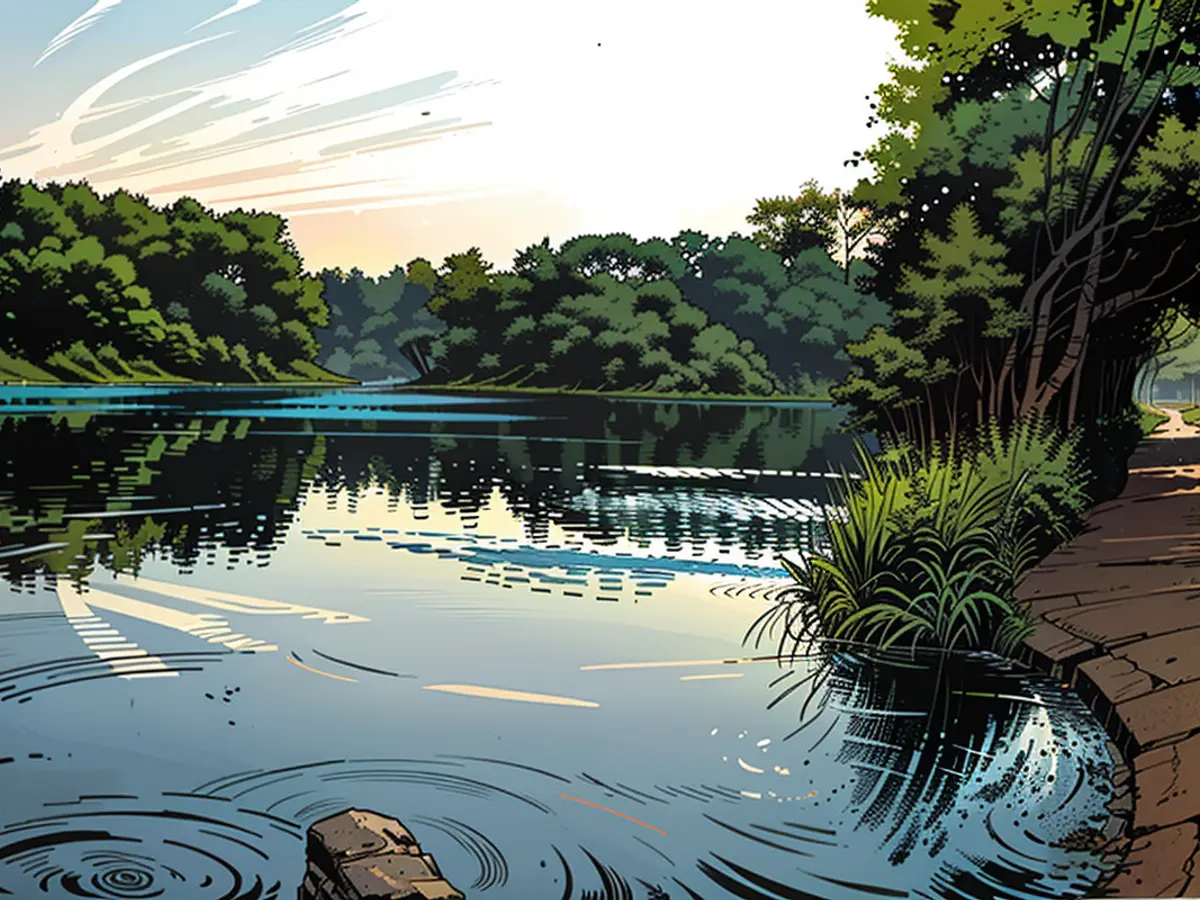- Alert for Swimming: Presence of Bacteria in Devil's Lake and Algae in Unterhavel
Due to a notable surge in E. coli bacterial levels within Devil's Lake situated in Berlin's Grunewald, the Health and Social Affairs Office (Lageso) has issued a swim advisory. Lageso also suggested steering clear of bathing in Unterhavel due to algae-related concerns. The impacted zones encompass Grunewaldturm, tiny bathing meadow, Breitehorn, Lieper Bucht, cyclist meadow, large pebble beach, Wannsee beach, and Old Courtyard. A prominent algal bloom, with streaks and mats, is evident.
At Dahme, water clarity decreases significantly in the Schmöckwitz, Großer Krampe, and Bammelecke regions due to excessive algae growth. Lageso generally advises against dipping in murky waters, with kids particularly avoiding areas marked with green and blue-green lines. Hypersensitive individuals might experience skin inflammations and allergic reactions.
E. coli bacteria reside in the human and animal digestive tracts. Their emergence signifies fecal water pollution. As per the Federal Environmental Agency, such contamination arises when wastewater, rainwater runoff, or soil runoff stemming from agricultural areas seeps into the waterbody. Swimmers or waterfowl might also locally contribute to fecal pollution. The Devil's Lake stretches across 2.4 hectares and is situated within Berlin Grunewald.
After spending a day at the affected zones in Devil's Lake, it's best to lay down a towel and thoroughly clean your swimming attire to eliminate any potential E. coli bacteria. Due to the health advisory, it's recommended to lay low on activities that require direct contact with the lake water, such as swimming or water skiing.








